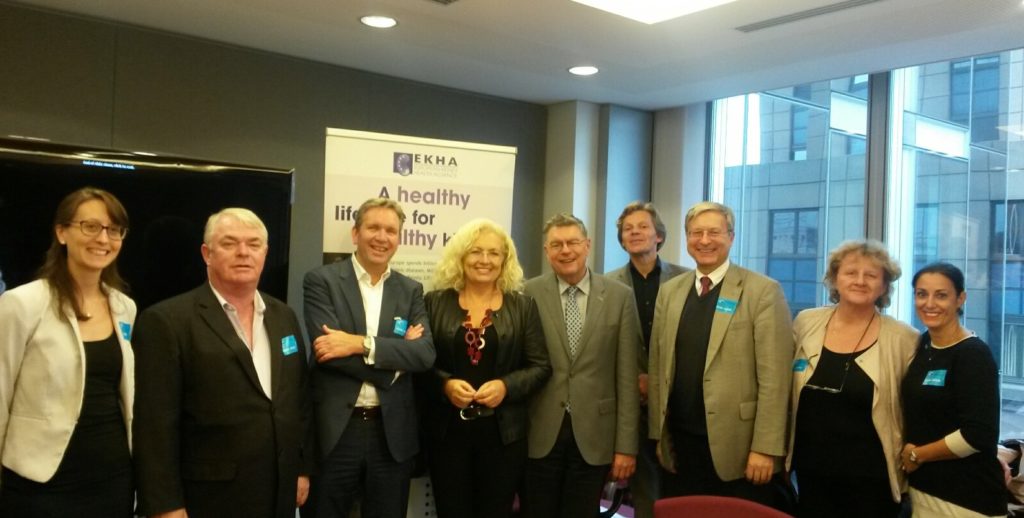
MEP Group for Kidney Health event on Improving Prevention & Health literacy
19 October 2015Improving Prevention & Health Literacy
The Quest to reduce economic burden of chronic disease in the EU
An event of the MEP Group for Kidney Health
19th October
On 19th October, EKHA, together with the MEP Group for Kidney Health held a meeting in the European Parliament to discuss how prevention and health literacy can help reduce economic burden of chronic disease in the EU. The event was hosted by MEP Karin Kadenbach (S&D, Austria), Chair of the MEP Group for Kidney Health. The focus of the discussion was set on the importance of chronic disease prevention for quality of life, as well as for national health budgets. Conclusions included the pressing need for improved prevention and health literacy amongst the general public and legal frameworks for industry commitments.
Speakers included EKHA Chair Prof Raymond Vanholder, Tom Oostrom, Director of the Kidney Foundation (Netherlands) and Laura Webber, Director for Public Health Modelling at the UK Health Forum.
Prevention is better than cure
All speakers underlined the need for increased investment in prevention, as this would be more cost-effective than spending on treatment of established disease. Currently, less than 3% of national health spending is allocated to prevention whilst 97% of health care budgets go to treatment of disease. Prevention needs to be enhanced through education around lifestyles and dietary restrictions, which is where health literacy comes into play. In the case of CKD, more access to transplantation in the EU should be advocated, as it is cheaper than dialysis and results in an improved quality of life and health outcome for the patient.The European Commission is committed to helping reduce the burden of chronic disease, notably by funding research projects such as the Economics of Chronic Disease project, EConDA (link to news published in October on the EKHA website).
The key aim is to aid EU Member States to develop, select and implement more cost-effective policies to improve chronic disease prevention and impact upon populations with the highest rates of premature deaths from chronic diseases and reduce health inequalities. Therefore, a methodology for measuring cost-effectiveness of chronic disease intervention has been developed. A microsimulation model shows that small changes can have important effects on disease burden. Some tools are available for download to test the interventions (link to the downloadable tool). EKHA is a collaborating partner to the EConDA project.
Prevention strategies can be straightforward – for instance main risk groups such as people who are obese, smokers, diabetics or people with hypertension or cardiovascular disease, are easy to target through their GPs and often, the same group of people have an increased risk of CKD. Therefore, early detection in those high risk groups is feasible and this is what should be advocated for.
Positive example are being undertaken, such as in the Netherlands, where an Agreement for Improving Product Composition was signed between Dutch Health Minister Schippers & Industry (January 2014). The founding principle of this agreement is self-regulation of industry in reducing the excessive salt in processed food. Indeed, in the Netherlands, experts have concluded that consumers don’t notice the gradual phasing out of salt in processed food and their health will benefit from this move over time.
During the event, everyone agreed that the EU should put this issue of preventive salt reduction on its agenda. The EU Commissioner for Health is an advocate of prevention, but more can be done. For MEP Kadenbach, voluntary commitment from industry to reduce salt is necessary, but not enough. In the end, the commitment should be legally binding.
MEP Kadenbach also expressed her willingness for interaction between different MEP Groups such as the MEP Group for Kidney Health and the MEP Heart Group in order to address common risk factors to heart disease and kidney disease.
